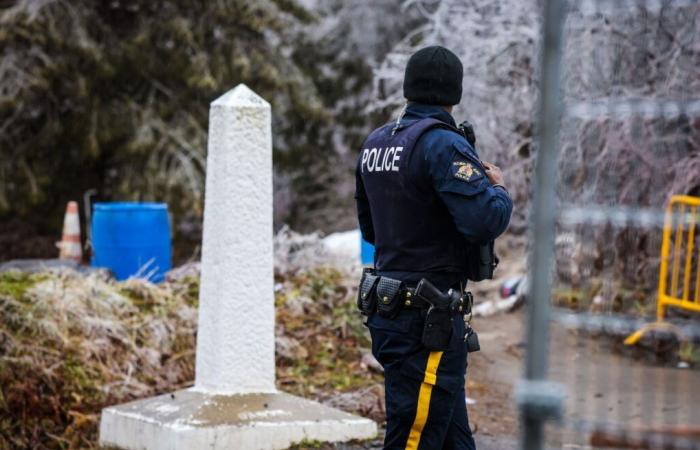Ottawa intends to strengthen border security by investing in helicopters and more than a hundred new agents to fight organized crime and irregular immigration.
These measures announced Tuesday, part of a detailed plan to protect the border, follow the announcement of a $1.3 billion investment in Monday’s economic statement.
The Minister of Finance, Dominic LeBlanc, still holder of the Public Security portfolio, and the Minister of Immigration, Marc Miller, also announced reinforced collaboration with American law enforcement, particularly for the exchange and information sharing. Very few measures to restrict asylum seekers and permanent immigration have been detailed.
In addition to new helicopters, drones and surveillance towers, elements of a new intelligence operational force led by the Royal Canadian Mounted Police, Ottawa’s investments aim to better equip the Canada Border Services Agency (CBSA). “ [Ils] will make it possible to deploy new tools based on chemical detection, imaging and artificial intelligence, as well as new canine teams to better detect illegal drugs at points of entry as well,” indicated Dominic LeBlanc.
In order to dismantle all drug trafficking and other illicit trade, including human trafficking, the CBSA’s mandate will also be expanded to allow agents to inspect not only what enters Canada, but also exports.
No more “circling the post”
After promising stricter rules to regulate and reduce temporary and permanent immigration, the Minister of Immigration, Marc Miller, announced some measures to strengthen the integrity of the system.
Immigration, Refugees and Citizenship Canada will work closely with the United States to prevent people with criminal backgrounds from entering Canada. There will also be greater scrutiny of electronic travel authorizations. “We will also continue to put in place strengthened controls and improved tools to detect fraud and to reduce in particular the number of [faux] visitors to Canada, said Marc Miller. That is to say so that people who come here under the pretext of a tourist visa, for example, are really tourists and return home and do not take advantage of the opportunity to head towards the United States. United. »
He will also end what he considers to be an irritant to the United States, namely “circling the post”, a tactic which consists of leaving Canada through a land border crossing, without entering the United States, and return immediately to request renewal of a visa from Canadian customs officials. This practice was often used by temporary permit holders and allowed them to renew their residence permit more quickly.
« [Cela] consumes valuable resources on both sides of the border, slows down border traffic and prevents officers on both sides of the border from focusing on more critical tasks,” said Minister Miller. Holders of a temporary permit in Canada will now have to apply online to renew their permit.
Asylum system
The government also wants to “streamline” the asylum system in order to quickly process illegitimate requests. However, nothing is planned to cancel the possibility of submitting an asylum application 14 days after entering the country irregularly. This possibility, which results from the agreement on safe third countries, was seen as a breach in particular by the Bloc Québécois which had asked to plug it.
“The political parties asked us to fill the gap in the fourteen-day exception. For now, this would be a discussion that would first be held with the United States. It’s a two-way deal. When asked if the goal is to return people who are taking advantage of this breach to their countries rather than the United States, Marc Miller replied that it is “an idea.” “But any proposal will require legislation before the government,” he said, adding that the current sclerotic state of Parliament made this difficult.
Mr. Miller also insisted that it was “dangerous” to try to cross the Canadian-American border between official points of entry and that “in any case, any subsequent asylum request will fail.”
Recall that the President-elect of the United States, Donald Trump, has threatened to impose customs duties of 25% on all products from Canada and Mexico if the two countries fail to stem the flow of migrants and of drugs at the borders they share with their powerful neighbor.






